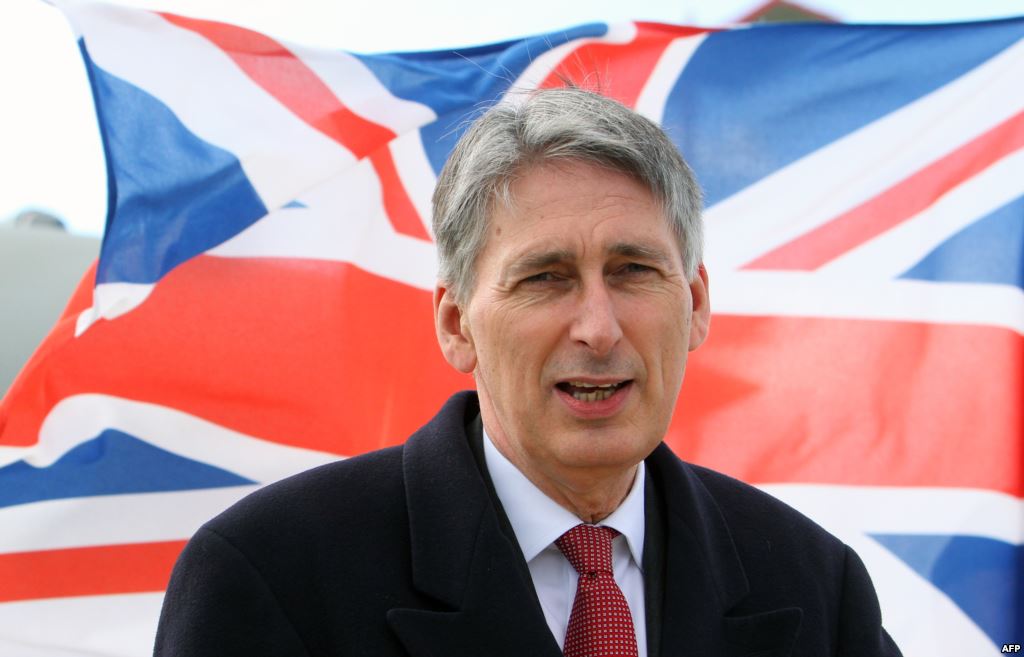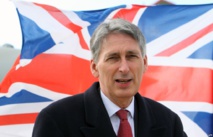The new projections forecast average growth of 1.4 per cent over the next five years, meaning Britain's economy could be 72 billion pounds (94 billion dollars), or 3.4 per cent, smaller in 2021 than was projected in March 2016, the last forecast before Britain voted to leave the European Union.
"The current income squeeze is set to be longer - though shallower - than the post-crash squeeze, with real household disposable incomes set to fall for an unprecedented 19 successive quarters between 2015 and 2020," the Resolution Foundation said.
It said recent changes to tax and benefit policies will "put downward pressure on living standards and upward pressure on inequality," with the poorest one-third of households likely to lose an average of 715 pounds annually by 2021, and the richest one-third gaining an average of 185 pounds.
"Families are now projected to be in the early stages of the longest period of continuous falls in disposable incomes in over 60 years - longer even than that following the [2008] financial crisis," said Torsten Bell, director of the Resolution Foundation.
In a budget speech on Wednesday, Chancellor of the Exchequer Philip Hammond promised to support a huge expansion of housing construction and help small businesses and high-technology firms to "build on the strengths of the British economy."
Bell welcomed the focus on housing, a "key issue of intergenerational concern."
But he said the exemption of first-time buyers from a purchase tax, or stamp duty, for homes costing less than 300,000 pounds was "a very poor way to boost home ownership."
Another think tank, the Institute for Fiscal Studies, said the new forecasts "make pretty grim reading," while a front-page headline in Thursday's Financial Times warned that a "grim outlook overshadows [the] housing drive."
"The immediate effects of all this on households is already being felt," Paul Johnson, the institute's director, said in a briefing.
"Real earnings are falling this year as inflation has risen to 3 per cent," Johnson said.
The government's forecast that earnings could still be below the 2008 level in 2022 was "truly astonishing," he said, adding that he hoped the forecast "turns out to be too pessimistic."
The government's Office for Budget Responsibility said it expects growth to slow over the next two years "as public spending cuts and Brexit-related uncertainty weigh on the economy," before it "picks up modestly thereafter as productivity growth quickens."
In a regional report last week, the International Monetary Fund also lowered its forecast for Britain's annual GDP growth to 1.7 per cent this year, down 0.4 percentage points from its forecast in April.
The IMF said it expected Britain's GDP to expand by 1.5 per cent in 2018 and 1.6 per cent in 2019, "as Brexit has started to weigh on growth."
"The current income squeeze is set to be longer - though shallower - than the post-crash squeeze, with real household disposable incomes set to fall for an unprecedented 19 successive quarters between 2015 and 2020," the Resolution Foundation said.
It said recent changes to tax and benefit policies will "put downward pressure on living standards and upward pressure on inequality," with the poorest one-third of households likely to lose an average of 715 pounds annually by 2021, and the richest one-third gaining an average of 185 pounds.
"Families are now projected to be in the early stages of the longest period of continuous falls in disposable incomes in over 60 years - longer even than that following the [2008] financial crisis," said Torsten Bell, director of the Resolution Foundation.
In a budget speech on Wednesday, Chancellor of the Exchequer Philip Hammond promised to support a huge expansion of housing construction and help small businesses and high-technology firms to "build on the strengths of the British economy."
Bell welcomed the focus on housing, a "key issue of intergenerational concern."
But he said the exemption of first-time buyers from a purchase tax, or stamp duty, for homes costing less than 300,000 pounds was "a very poor way to boost home ownership."
Another think tank, the Institute for Fiscal Studies, said the new forecasts "make pretty grim reading," while a front-page headline in Thursday's Financial Times warned that a "grim outlook overshadows [the] housing drive."
"The immediate effects of all this on households is already being felt," Paul Johnson, the institute's director, said in a briefing.
"Real earnings are falling this year as inflation has risen to 3 per cent," Johnson said.
The government's forecast that earnings could still be below the 2008 level in 2022 was "truly astonishing," he said, adding that he hoped the forecast "turns out to be too pessimistic."
The government's Office for Budget Responsibility said it expects growth to slow over the next two years "as public spending cuts and Brexit-related uncertainty weigh on the economy," before it "picks up modestly thereafter as productivity growth quickens."
In a regional report last week, the International Monetary Fund also lowered its forecast for Britain's annual GDP growth to 1.7 per cent this year, down 0.4 percentage points from its forecast in April.
The IMF said it expected Britain's GDP to expand by 1.5 per cent in 2018 and 1.6 per cent in 2019, "as Brexit has started to weigh on growth."









 Home
Home Politics
Politics











